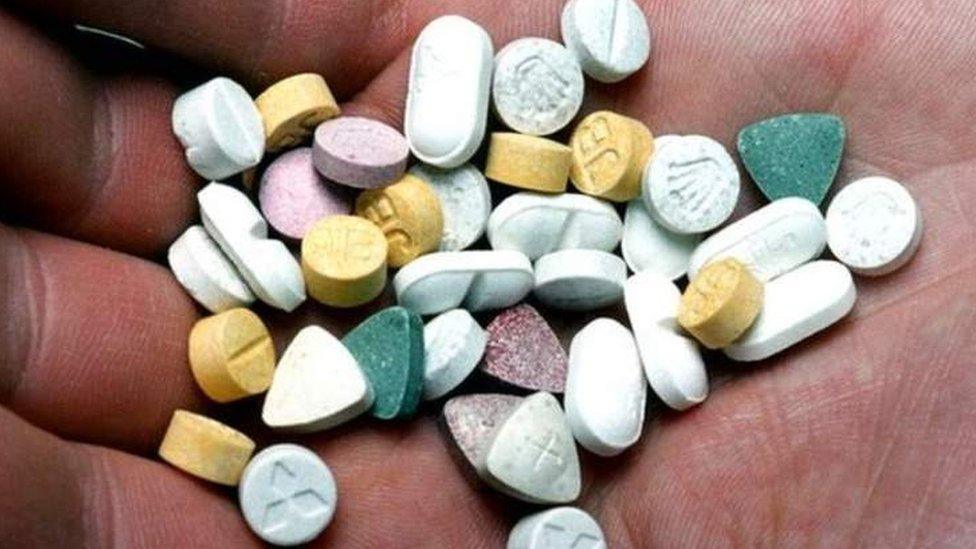Belfast hospital treats at least 30 drugs-related cases a day
- Published
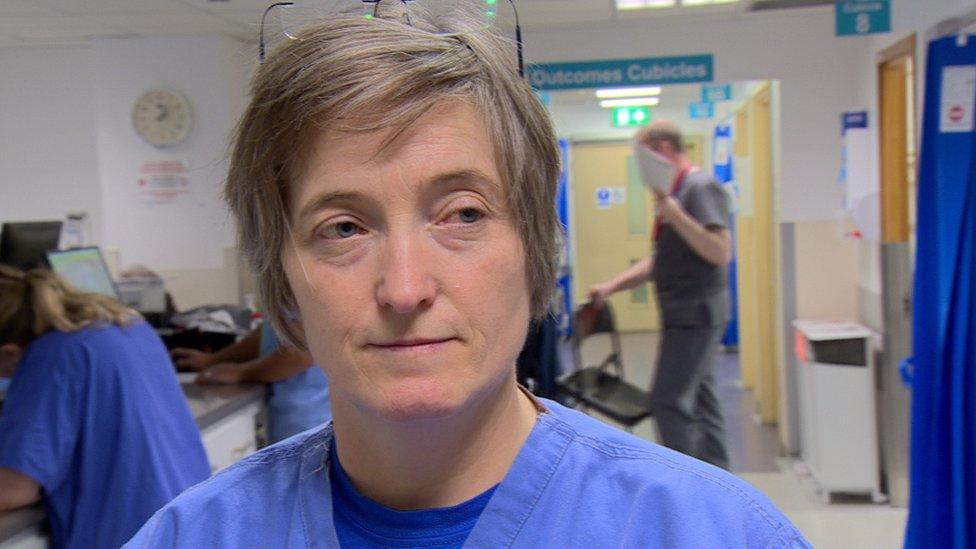
Dr Aisling Diamond says she cannot recognise Belfast as the city of her youth
The Mater Hospital's emergency department deals with about 30 drugs-related cases every day, with children aged 14 being treated for cocaine use.
In some cases patients are presenting with acute psychosis.
In others, they have attempted to take their own lives.
Dr Aisling Diamond, consultant in emergency medicine at the Belfast hospital, believes the situation will get "an awful lot worse".
"I can't recognise Belfast as the city I grew up in," she said.
"I can't believe what's happening and all I can see is deterioration.
"I can't see it getting any better unless there's a complete overhaul of the system."

An emergency nurse at the Mater says north Belfast has a "different calibre of patients"
The number of people referred to the hospital's psychiatry team has doubled in the last four years.
In 2015 the figure was 731. In 2019 it was 1,374.
According to Dr Diamond, drugs and alcohol are behind nearly all of those referrals.
Age profile
I spent a nightshift with Dr Diamond at the Mater and the results seemed shocking.
But the doctor said there was nothing unusual about the night, which included five attempted suicides - each with an element of substance abuse.
"We see between 150 and 170 patients every day and a third of those would be drugs-related," she said.
"The age profile has changed, so, for instance, last week we had two 14-year-olds who had taken cocaine.
"The drugs they're taking has changed and the aftermath of that has changed."
'Often clueless'
Dr Diamond says seeing 14-year-olds who have taken cocaine is not unusual and the range and availability of drugs has changed dramatically in the last five years with heroin, cocaine and benzodiazepines (a type of sedative) the most common drugs.
"Parents are often clueless," she said.
"Most are unaware their children have been taking drugs but there's a fairly significant proportion that do know but they just can't manage it.
"They seem powerless even though they know the dangers."
The number of drug-related deaths registered in 2018 Northern Ireland increased to 189, according to official statistics.
The figure is 40% higher than 2017 and has more than doubled over the last 10 years.
Figures from the Northern Ireland Statistics and Research Agency show half of the deaths involved three or more drugs.
Rat poison
Dr Diamond previously worked in the Causeway Hospital's emergency department in Coleraine and rarely saw a problem drug user, and if she did they would be in their 20s or 30s.
She is convinced the drug-use problem, particularly in north Belfast, is fuelling the mental health crisis.
"Initially there's the high from using the drug, but with everything in life there's balance and after that comes the depression," she said.
"If you continue to take it and you're unfortunate enough, the psychosis can develop.
"It will take a huge number of staff to manage someone who has taken drugs."
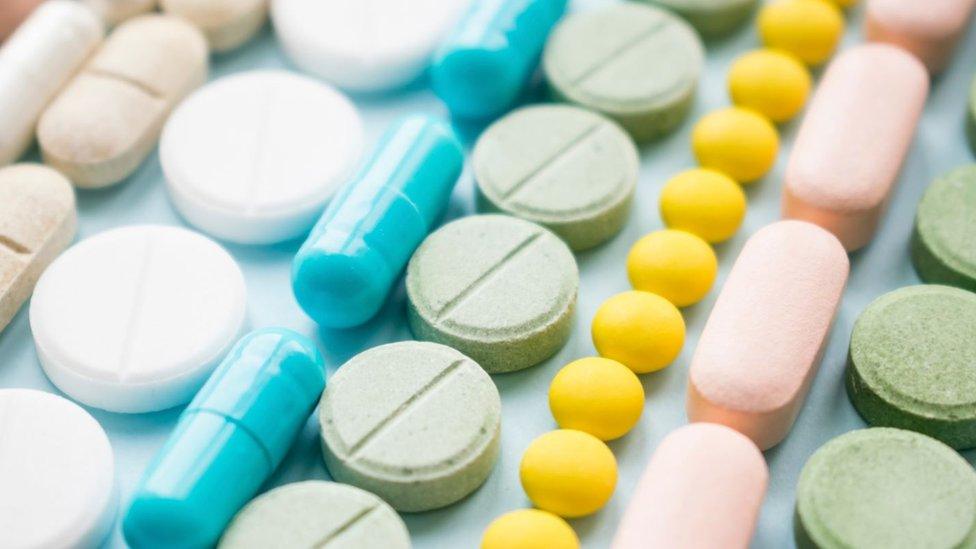
Dr Diamond says the bottom line is Northern Ireland has a major drugs problem
Tamar Boal, a deputy sister, was in charge of the emergency department when we visited.
"The majority of our night shifts would be drugs-related," she said. "North Belfast has a different calibre of patients."
But there is one case which has left an indelible mark on her - a child who had been at a nearby concert and was in a life-threatening condition when he arrived.
"He had taken an unknown substance at the concert that turned out to be a high percentage of rat poison," she said.
"When he came in he had a temperature of over 40, he went into multi-organ failure and was very probably one of the sickest drug overdoses I've ever seen."
Farming communities
Patients who have taken drugs are often unpredictable.
Ms Boal said she had been assaulted four times in her role as deputy-sister.
"Some days are worse than others and I would always put myself in front of a more junior nurse if there is trouble because I don't want them getting injured," she said.
Ms Boal used to work at the Royal Victoria Hospital's emergency department but says the Mater is very different.
"When you see the impact drugs have on children," she said.
"I go home and tell my 12-year-old daughter 'if you could see what mummy sees, drugs are so dangerous'."
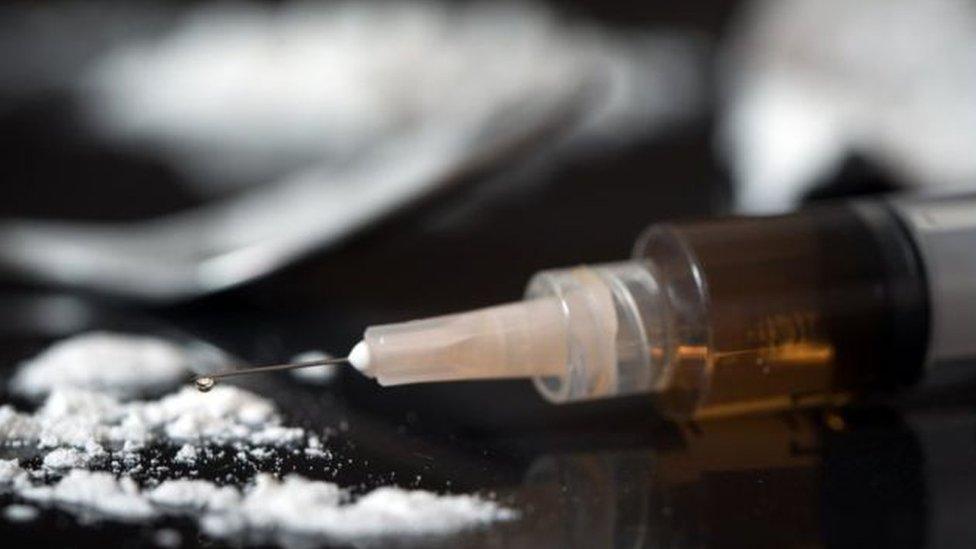
There are concerns about the use of heroin in Northern Ireland
Dr Diamond says the heroin epidemic particularly concerns her.
"The other thing we've noticed is that people are now presenting from other towns and villages out in the country," she said.
"I never in my life thought I would be seeing people from farming communities taking heroin, it's just absurd but that's what's happening."
Online availability of drugs has made accessing them easier than ever, she adds.
Dr Diamond says the bottom line is Northern Ireland has a major drugs problem.
"It affects the rich and the poor but the outcome is the same," she said.
"The outcomes are poor and unless things change it's going to get worse."
- Published16 January 2020
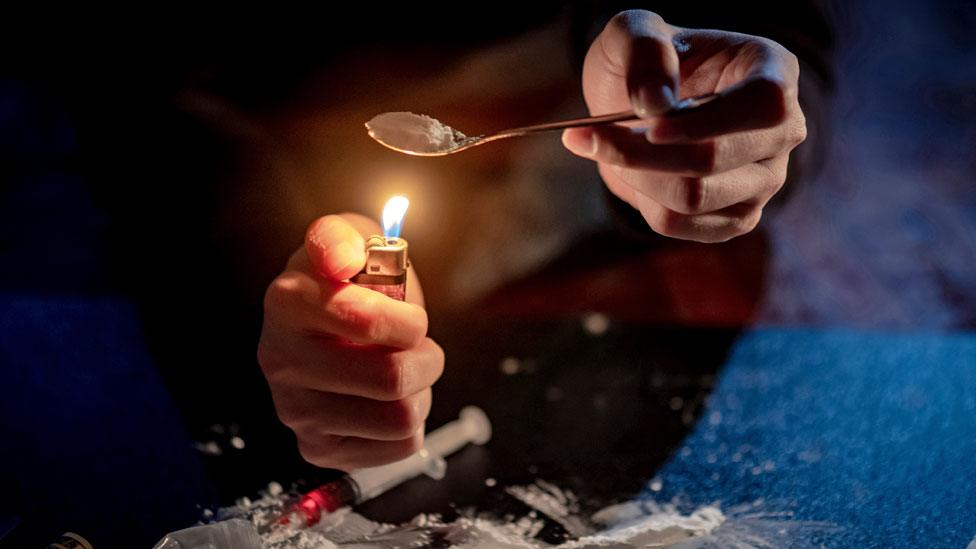
- Published4 March 2019
